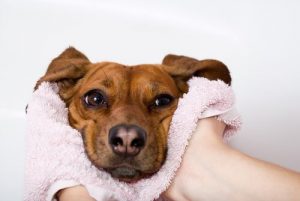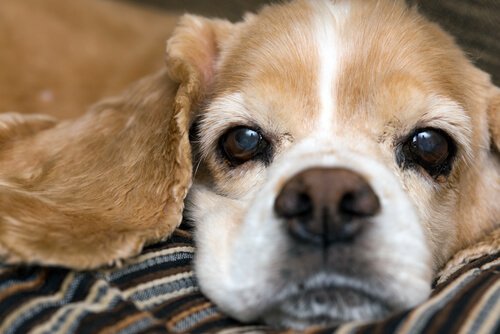When Your Dog's Dry Nose Means Illness

When a dog has a dry nose, it usually says something about their health, whether they’re a puppy or an adult. A dog’s nose should be moist most of the time. However, frequent dry spells or changes in pigmentation may happen due to certain external factors (weather, most of the time) or genetic predispositions.
Causes of dry nose in dogs

Although many dog owners get worried when they notice that their dog has a dry nose, it doesn’t always indicate a serious illness or an emergency trip to the veterinarian.
Among the factors that can cause dryness or changes in pigmentation in a dog’s nose:
- The weather: Extreme temperature changes (summer or winter) are more likely to cause changes to a dog’s nose. Temperature changes affect all living things, in addition to dogs. Dogs are often outside in cold temperatures and also exposed to lots of sunlight. Episodes of dry nose could also be caused by lower levels of hydration; the same goes for changes in pigmentation.
- Some breeds like Golden Retrievers, Labradors, Samoyeds and Siberian Huskies have noses that change color depending on the time of year. Meanwhile, other breeds such as Pit bulls, Australian Shepherds and Collies often have genetic depigmentation in their noses.
- Sunburn: Too much sun is as harmful to dogs as it is to humans. Dog owners should be careful when it’s very sunny out.
- Too much time lying in front of a heat source: In the winter, your dog naturally wants to be close to heat.
- Poor ventilation: If the dog usually spends time in a room that has little ventilation, it may result in a dry nose.
Measures to take
The first thing to do is to consult with a vet. But you can take action to keep your dog and his nose healthy. There are things you can do to keep a limited case of dry nose from becoming more serious. This is the case with nasal hyperkeratosis, which results in an increase in the thickness of the skin on the dog’s nose.
- Regulate how much time your dog is in the sun. Sunbathing is an activity that many dogs enjoy, but owners should make sure that their dogs avoid constant, harsh sunlight.
- Put sunscreen on your dog. There are sunscreens designed to protect your dog from the sun. Some of these products are very similar human sunscreens. However, this is not ideal. Instead, you should always use products designed specifically for dogs. In any case, all products that you put on your dog should be creams without zinc oxide.
- Vaseline is useful for alleviating dry nose and dehydration-related cracks in the skin. Vaseline should be applied in small amounts, since your dog will lick his nose to remove anything on it. Be careful to apply only a small amount so you don’t trade nasal discomfort for indigestion.
- Make sure your dog drinks water. This is the best way to hydrate your dog and moisturize his dry nose. If the water is cold, even better.
- Wash your dog’s nose with soap and cool water. But there’s one caveat: You should only use neutral or mild soaps designed exclusively for animals. Under no circumstances should soaps for human use be used on your pet.
Red alert
Your dog’s dry nose could require immediate attention, as his life could be in real danger.

The signs of red alert-level dry nose are:
- When the dryness stops being occasional and becomes permanent. Veterinarians indicate that more than two days with a dry, cracked nose is a veterinary emergency.
- Bleeding: Either internal or external bleeding, stemming from cracks in the skin or sores.
- Excessive nasal mucus, especially if it becomes yellowish or green.
- Bulging, visible or obvious inflammation.
- Itchiness: In extreme cases, dogs rub their nose violently against the ground or walls.
- If the dryness is accompanied by other factors such as coughing, sneezing, vomiting, diarrhea, or loss of appetite.
Dry nose could stem from burns, a weak immune system, Moquillo’s disease or dermatological diseases such as skin cancer. In any of these cases, your dog will need veterinary attention as soon as possible.
This text is provided for informational purposes only and does not replace consultation with a professional. If in doubt, consult your specialist.